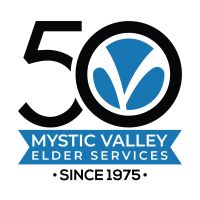Though a time of celebration, the holiday season is one of the hardest times of the year for many, and feelings of sadness, loss, or isolation are very common. The days are cold and short, less light for Vitamin D, there are fewer nutrient-rich foods around and it’s harder to get exercise than in the nice months. Couple that with the intense pressure to be cheerful, even for those of us who may not celebrate the holidays. And the complicated feelings we may have about past holidays. It’s all a recipe for high anxiety and suffering from a type of depression called Seasonal Affect Disorder, or SAD.
Depression is the most common ailment in those aged 60 and over. People suffering from SAD can set themselves into a depression and cannot get into the holiday spirit. Here are some positive steps that may help you feel healthier this winter.
- Acknowledge your feelings and let yourself off the hook. It is okay to not feel like a holiday card all the time.
- Reach out. Being alone and lonely are not the same thing but if you are feeling particularly isolated, please seek out your community. Book clubs, activity groups in your building, volunteering, and civic or religious organizations are good places to start. Broaden your friendships.
- Do not abandon healthy habits. Be kind to your body and mind by maintaining your self-care practices. Eat well and get plenty of sleep.
- Create your own traditions. If the loss of old traditions is making you glum, adapt them to your new life circumstances or build something new.
- Take a breather. Make some time for yourself. Even if you spend plenty of time on your own, dedicating time to spend on yourself will help you return to yourself.
- Seek professional help if you need it. You may find it empowering to face the winter holiday season with your own health and wellbeing in mind. However, despite your best efforts, you may feel persistently sad or anxious, unable to sleep, and dismayed by even routine tasks. If these feelings last for a while, ask for help.
If you need professional help, Mystic Valley Elder Services operates a Mobile Mental Health program for older adults who need professional mental health services but are unable to leave their homes for treatment or counseling. Through its Mobile Mental Health program, clinical caseworkers provide outreach to elders experiencing mental health conditions that impact their functioning and ability to get their needs met. To find out more about this program, call us at 781-324-7705.
Special thanks to Foundation and Corporate Funders who support the Mobile Mental Health program, including: The Adelaide Breed Bayrd Foundation; Charles H. Farnsworth Trust, Bank of America, N.A.,Trustee; and Winchester Hospital–a member of Lahey Health.
